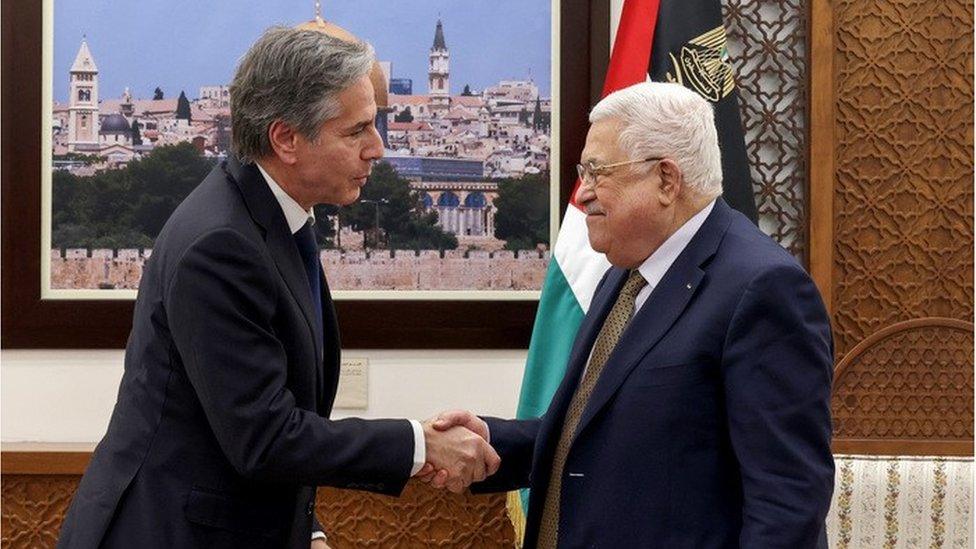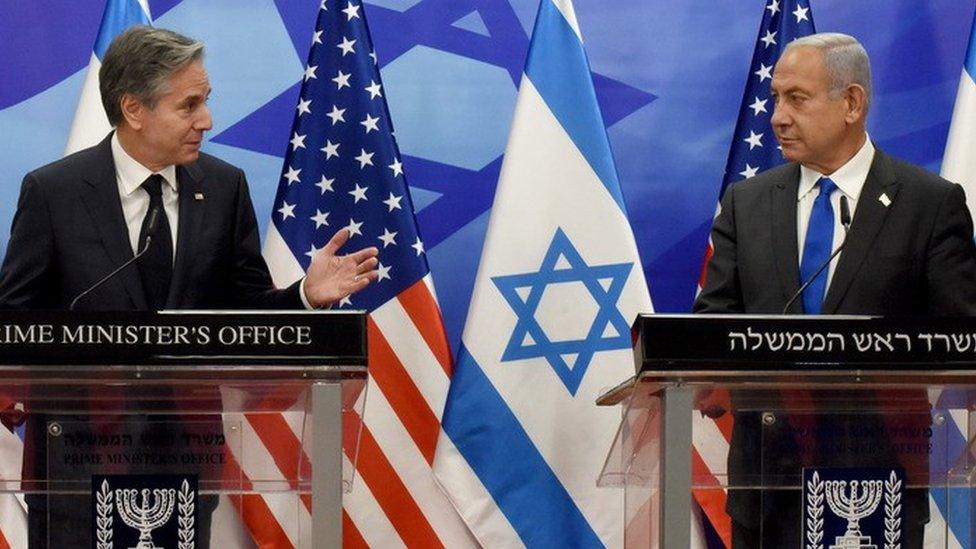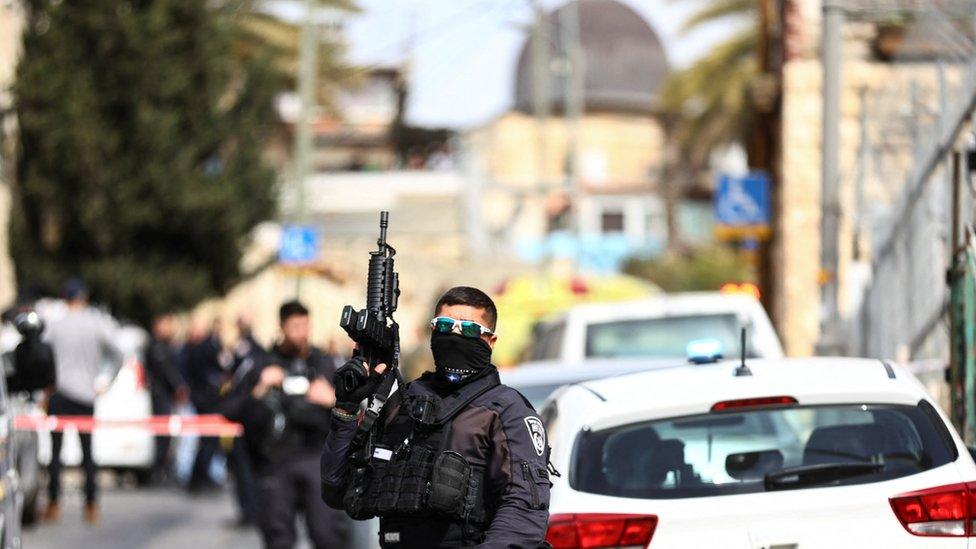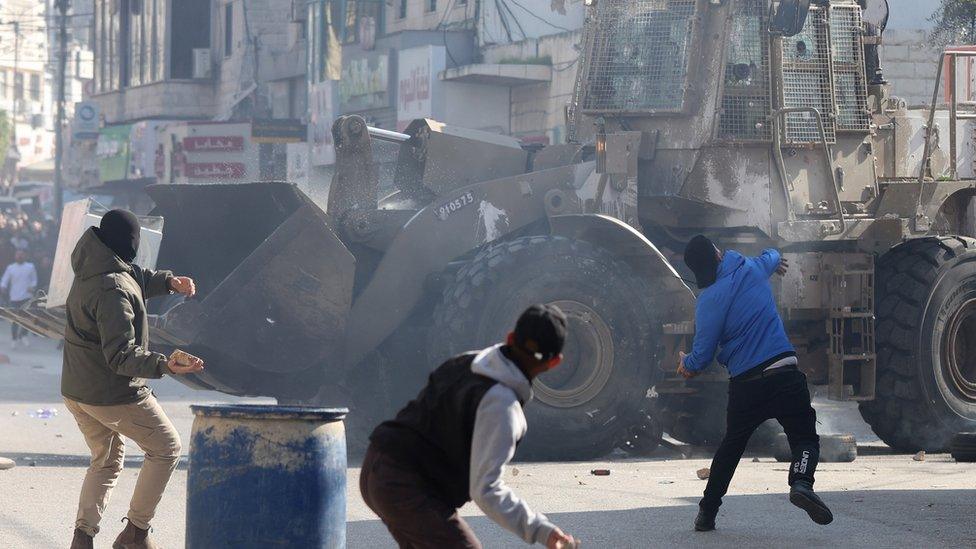Antony Blinken: Settlements hinder Israeli-Palestinian peace
- Published

Mr Blinken has met Palestinian and Israeli leaders on his two-day visit
US Secretary of State Antony Blinken has criticised Israeli settlement activity in the occupied West Bank as an obstacle to peace.
The comments came following talks with Palestinian leader Mahmoud Abbas in the West Bank city of Ramallah on Tuesday.
It underlines US opposition to a key platform of Israel's new government, which aims to strengthen settlements.
Mr Blinken's visit comes in the wake of spiralling tensions after a spate of deadly attacks and a military raid.
Ten Palestinians - militants and at least one civilian - were killed in the West Bank city of Jenin on Thursday in the deadliest incident of its kind in years when Israeli forces mounted a raid against a cell which Israel said was planning to carry out an imminent attack.
The following day six Israelis and a Ukrainian were killed when a Palestinian opened fire near a synagogue in East Jerusalem, then hours later an Israeli father and son were wounded when a 13-year-old Palestinian shot at a group of people also in East Jerusalem.
Two Palestinians were also shot dead in separate incidents in the West Bank on Sunday and Monday - one who Israeli officials said was approaching a Jewish settlement with a gun, and the other who died when Israeli troops opened fire at a vehicle which the military said had driven away after hitting a soldier.
Mr Blinken spoke of a "shrinking horizon of hope for the Palestinians", which, he said, needed to change. He affirmed Washington's backing for a two-state solution to the Israel-Palestinian conflict - an independent Palestinian state alongside Israel - saying it opposed actions by either side that would make this more difficult.
"We've been clear that this includes things like settlement expansion, the legalisation of outposts, demolitions and evictions, disruptions to the historic status of the holy sites, and of course incitement and acquiescence to violence."
Mr Abbas blamed Israel for "what is happening today, because of its practices that undermine the two-state solution and violate the signed agreements".
Israel and the Palestinians have long accused each other of violating accords of the early 1990s which aimed to lead to an eventual peace agreement between the two sides.
The newly-formed Israeli government resolutely opposes the concept of a Palestinian state and supports the expansion of Jewish settlements on land the Palestinians claim for a hoped-for state of their own.
Mr Netanyahu, who held talks with Mr Blinken on Monday, has also pledged to legalise dozens of outposts - settlements built without official authorisation - before the end of February.
Israel has built about 140 settlements housing some 600,000 Jews since it occupied West Bank and East Jerusalem in the 1967 Middle East war.
The vast majority of the international community considers the settlements illegal under international law, though Israel disputes this.
- Published30 January 2023

- Published28 January 2023

- Published26 January 2023
